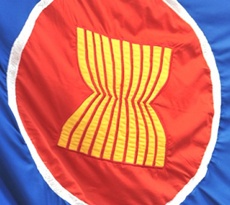India, Asean open up for free trade with services and investments pact
09 Sep 2014
India and the 10-member Association of South East Asian Nations (Asean) today signed a free trade agreement (FTA) for trade in services and investments, opening up further investment opportunities and paving the way for freer movement of professionals between India and Southeast Asia.
 India had already implemented a free trade agreement (FTA) in goods with the Asean, signed in 2010, and the signing of the services and investments pact heralds a new era of comprehensive economic partnership between the two sides.
India had already implemented a free trade agreement (FTA) in goods with the Asean, signed in 2010, and the signing of the services and investments pact heralds a new era of comprehensive economic partnership between the two sides.
Official sources said that all Asean member countries, except for the Philippines, have ratified the deal. Asean comprises Singapore, Malaysia, Laos, Cambodia, the Philippines, Brunei, Vietnam, Myanmar, Thailand and Indonesia.
Philippines had earlier raised concerns that opening up of the services sector may have an adverse impact on its own services trade given India's strength in the service sector.
The services and investment pact incorporates movement of professionals among the signatories and this will immensely benefit professionals like doctors, engineers, chartered accountants and IT professionals.
Sources said the trade in services agreement contains all features of a modern and comprehensive pact and is in line with the other bilateral agreements that India has signed so far.
"Some of the important articles contained in the agreement are ones on transparency, domestic regulations, recognition, market access, national treatment, increasing participation of developing countries, joint committee on services, review, dispute settlement and denial of benefits," the official said.
The signing of the free trade agreement (FTA) in services and investments comes two years after the two sides concluded discussions on the pact in 2012.
The cabinet under the earlier UPA regime had, in December 2013, approved the FTA in services between India and the Asean. However, Asean members required more time as they have to approach their respective parliaments for ratification of the pact.
The erstwhile UPA-II government had came under criticism for signing free trade agreements in haste, allegedly allowing for a flood of imports from Asean countries even as exports to these nations from India remained very low.
Following criticism, the commerce department undertook a study to gauge the impact of the FTAs on India's trade. India has FTAs with countries, including Korea, Japan, Singapore, Thailand and Indonesia.
The trade in goods agreement has boosted the total trade between India and ASEAN substantially in the past four years. Trade between India and the 10-member bloc stood at about $76 billion in 2012-13. Both sides aim to increase it to $100 billion by 2015 and envisage lifting import tariffs on more than 80 per cent of traded products by 2016.
The agreement was scheduled to be signed last month at the meeting of the Asean economic ministers in Myanmar. However, the pact could not be sealed as commerce minister Nirmala Sitharaman had called off her trip due to ''domestic compulsions.''
The signing of the agreement in services and investments is part of India's commitment to have a strong institutional architecture for economic ties with Asean. As part of this economic vision, India is also part of the regional cooperative economic partnership (RCEP) negotiations, which is currently being discussed between Asean and its six partner countries.
Key features of the Trade in Services Agreement:
- The Trade in Services Agreement with the Asean contains articles on transparency, domestic regulations, recognition, market access, national treatment, increasing participation of developing countries, joint committee on services, review, dispute settlement and denial of benefits;
- Both India and Asean member states have taken GATS plus commitments in various services and modes of supply. Each Asean member state has tabled individual schedule of commitments, which are equally applicable for India and other Asean member states.
- India has tabled three schedules of commitments one for Philippines, one for Indonesia and one for the remaining eight Asean member states. India also agreed that to increase participation of the least developed countries no additional requests would be tabled to the CLMV countries (Cambodia, Lao, Myanmar and Vietnam). All the three schedules tabled by India are well within the existing autonomous regime of India;
- A brief annex on movement of natural persons (one of the key areas of interest for India) has been included in the agreement. This defines business visitors, intra-corporate transferees (managers, executives and specialists) and contractual service suppliers. This will help provide commercially meaningful market across in Asean for professionals, including those from the IT/ITeS sector. Independent professionals have not been defined in the annex.



















